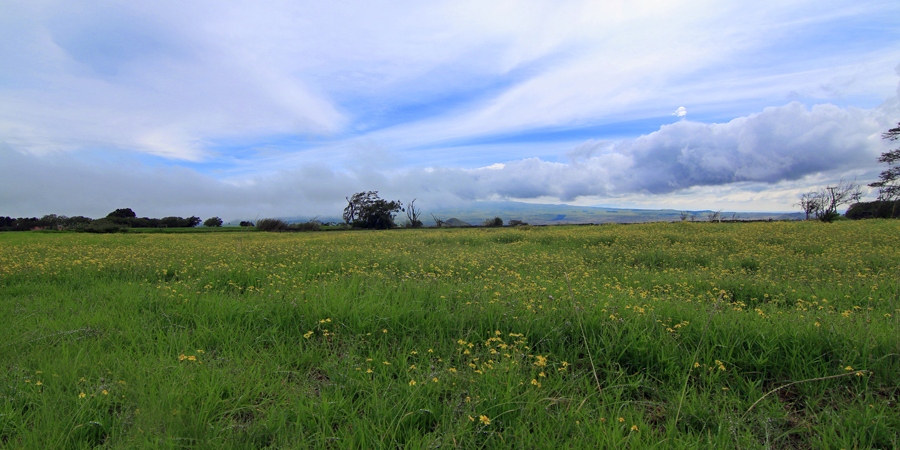Many spiritual paths focus on transcendence of individual self in order to experience a greater self, spirit or source energy. For those abused during childhood, however, sense of self and inner voice were never developed. Inner voice was often berated and no individual spiritual platform from which to spring was established.
To become spiritually mature and empowered, process is important: First, we establish authentic sense of self and inner voice through emotional and intellectual differentiation from family of origin; then, authentic openness of being arises.
Love You to Bits – Or Pieces
For those of loving family origin, you know your parents love you to bits and they support you–free of judgment–through ups and downs. With a security of knowing your parents have (or had) your back in an otherwise confusing world, you probably developed a sense of individual self, inner voice and authenticity. Fortunate you! A nurturing home does not mean that you will not experience challenges, but it does mean that you may interpret spiritual practices differently than someone who has been abused during childhood.
For those who were emotionally, physically, spiritually or sexually abused as a child, our inner voice was short-circuited and negated; we often felt shame, guilt and even responsibility for our abuse. To survive, our individual sense of self may have been poured into the abuser’s dysfunctional orientation to life. We may have merged with the abuser’s persona; disassociated and zoned out from the abuse; or over compensated by striving for perfection.
Combine childhood trauma with a well intended, dedicated spiritual practice and a possible scenario can unfold that looks something like this:
- In many spiritual paths, we are asked to transcend the ego or individual self, to rise above through meditation and contemplation. The messages of merging or fusing or coming into union with a greater power are found in abundance.
- The message of merging or fusion, whether it be with a higher power, a teacher or methodology, can be particularly seductive, as it seems second nature to us, for we are accustomed to disassociation and giving power away. Through spirituality, we have now discovered a positive coping mechanism, one that is soothing, euphoric and blissful–new experiences indeed! This discovery of spirituality may be so mesmerizing as to cause dramatic shifts in career, home and relationship.
- After dedicated practice, the euphoria inevitably diminishes and the person who had been abused, once again, recognizes an all-too-familiar spiritual barricade because, in continued practice of merging and transcendence, a vital step was overlooked: authentic development of inner voice and individual self through the emotional and intellectual differentiation from family of origin.
A Spiritual Juncture
It is at this key juncture that those who experienced abuse during childhood often reorient in one of these ways:
- We become disenchanted and familiar pain and malaise set in. We are unaware, or unwilling to consider, that the spiritual practice asked in the moment may be to own inner voice and differentiate self. We plod on with the practices and pray for a shift.
- We turn toward a community bonded in common experience, taking shelter in groupthink. Other practitioners or a trusted teacher may cite, and even blame, bad karma and advise the person to persevere and achieve a breakthrough. A person who has been abused may interpret this as, once again, it is her fault. This groupthink pressure, also found in dysfunctional families, is another familiar lair. The person may then further buy into groupthink and punish himself with additional shame and blame for not being able to experience transcendence or the totality of a simple phrase so often shared such as I am Love. We continue on with the practices, perhaps more dependent upon groupthink and further enmeshed in a toxic cycle of not feeling good enough while trying to attain mythical perfection, the evolution of a storyline established during childhood.
- We abandon hope in spiritual practice, feeling further misunderstood, shamed, guilty and depressed. We have tried it all. If we cannot experience I am love then we are utterly hopeless.
Additional note: For one who has experienced childhood abuse, love can beckon anxiety. We may interpret common spiritual phrases quite differently than those from deeply loving family origin. For a person who has experienced abuse, I am love is best followed with: And, I am anger. And, I am fear. And, I am confusion. And, I am sadness. And, I am compassion. And, I am empathy. I am all of this and much more.
Transcendence of ego and merging during spiritual practices, while forgoing emotional and intellectual differentiation from family of origin, leads to greater internal conflict.
For those who did not have the opportunity to develop authentic self and inner voice, for those who survived by merging with an abuser or through disassociation, our spiritual path is unique. Our relationship to spirituality and to a teacher or method must be intentional.
Spiritual Intentions to Differentiate and Reclaim Inner Voice
Understand the nature of your abuse; do the valuable work of therapy and coaching. Once we understand, we can better heal. I recommend Pete Walker’s book on Complex PTSD. In feeling emotional poison released and its waves of anger and sadness, it’s also time to take care and not overly wallow. I further recommend positive, solution-based models such the Bowen family systems therapy developed by Murray Bowen, www.thebowencenter.org.
Differentiate emotionally and intellectually from family of origin–while being open to and valuing of social connection. This is not a well-boundaried individualism nor rebellion, this is an authentic ability to nourish and establish inner voice while honouring others and our need for relationship and connection. You’ll see more at the Murray Bowen site mentioned above.
Use spiritual practices for personal benefit while being present, rather than giving power away to a teacher or merging with a practice or methodology. Continue to meditate and move the body. Treasure positive friends and thoughtfully enjoy their diversity of experience and opinion. Diversity of experience expands and grows the mind; it can also guide you to your true north.
Align with an uplifting spiritual methodology, rather than fusing with groupthink. Remain discerning; don’t allow emotional flutters of the heart to carry away reason.
Learn well your triggers. What triggers a hyper-vigilant state learned during childhood? But also, what triggers giving your power away, merging, spiritual bypassing or additional coping mechanisms? Are you growing your individual emotional maturity and individualism–while being open and discerning?
Vigilance is our friend. For a person who has experienced abuse, an idealistic notion of enlightenment or transcendence can hold allure: No more challenges, at last! Notice when you are being sucked into that void. Our spiritual work is to remain aware and vigilant, nourishing of individual self so an openness of being can flow through with authenticity. This requires ongoing presence and vigilance.
If you resonate with this post, perhaps it’s time to do the hard but oh-so-rewarding work of reclaiming the inner parts strewn about from childhood abuse. You can do it! Please leave your comments below and for further encouragement, visit my YouTube Channel.
Karuna is a spiritual coach who guides clients, through practical, relevant methods, to personal empowerment.





I would appreciate more specific information on your YouTube channel/videos/blogs location as karuna is a surprisingly popular name, and I can’t see your bio. Thanks.
Thank you for being in touch, Carol. Here is a direct link to my YouTube Channel:
https://www.youtube.com/channel/UCiXw_ftrQiEAqMhPgny_H5g?view_as=public
You’ll see a variety of videos at my channel: Vlogs about Spirituality Bypassing, videos to alleviate texting next, Guided Meditations for Complex PTSD and more. Please let me know if you need more information. Thank you!